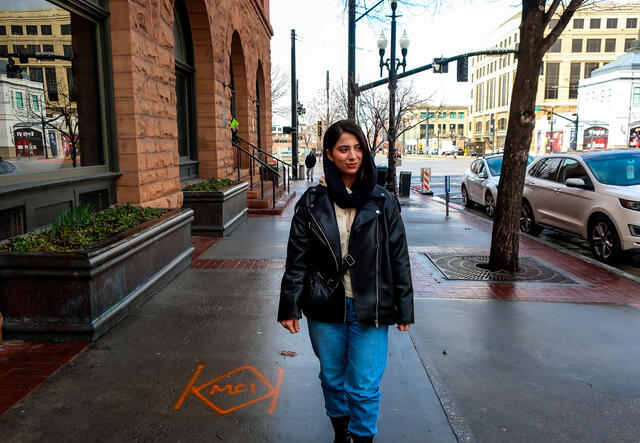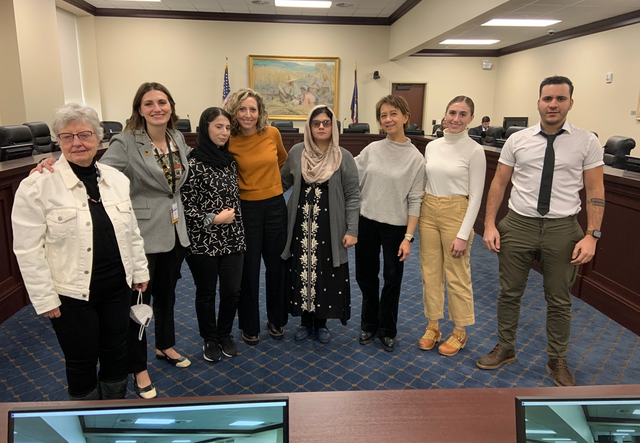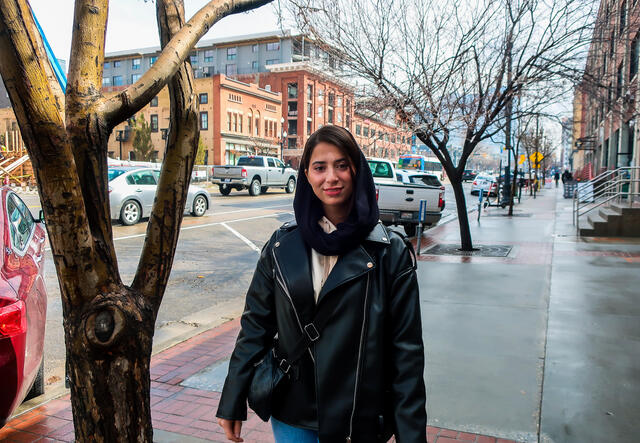Mahsa, a young, bright, and promising student, had recently completed her high school education and was eagerly pursuing her academic aspirations at a public university. She was born in Kabul, Afghanistan. Her father was an ambassador for the United States, serving the country for over two decades. Despite the many challenges and obstacles, the family might have faced in Kabul, Mahsa’s life was filled with joy, laughter, and boundless enthusiasm. Mahsa was a girl who had the biggest hope for her family. When the Afghan government was overthrown in 2021, Masha and her family were forced to leave their home.
As much as she was relieved when they reached initial safety in the U.S., Mahsa found it difficult to adapt to the different cultures of the new country. Luckily, organizations such as the International Rescue Committee (IRC) in Salt Lake City and the Department of Workforce Services (DWS) assisted Mahsa and her family. The IRC in Salt Lake City provided comprehensive case management services, ensuring the family was connected to eligible assistance and other essentials as they began rebuilding their lives in Utah.

Mahsa began to see the opportunities available to her as she adjusted to settling into life in the U.S. The more she explored her surroundings, she realized how unique this country is. One thing that stood out to her was the respect shown to women in the United States. Mahsa was amazed to learn that women and girls were given equal opportunities to work and study alongside men. She considered herself fortunate to have experienced everything this country had to offer. She was grateful for the opportunities made available to her and others. Mahsa saw the United States as a land of opportunity.
While Mahsa was able to acclimate to life in Utah well, her family continued to struggle. Mahsa recognized that education was a vital path for her family to achieve self-sufficiency in this new land.
The IRC education team came and talked to her sibling about school, which made her eager to go, and she asked if she could attend college just like her sibling. When resettled individuals arrive in Utah, they do not immediately qualify for in-state tuition rates, despite having never lived in another state. Without access to in-state tuition, newcomers are often unable to realize their full academic, personal, and professional potential. Due to high costs associated with out-of-state tuition, Mahsa required a residence eligibility in order to attend high school or college.
After a year of waiting, Mahsa excitedly submitted her application for her residency card after completing all requirements. But when she learned that her application had been had been rejected due to state residency regulations Mahsa's hopes were shattered. Mahsa's parole status kept her from following her dreams of attending college, which left her feeling completely heartbroken and in tears as she battled to come to terms with this disappointment. "I'm parolee, and I didn't get my green card; I couldn’t start college, and that makes me cry; that makes me sad,” said Mahsa.
During the 2023 Utah legislative session, Mahsa shared her story in front of state legislators as she fought for HB102. Her advocacy helped pass HB102, which extends residency-based in-state tuition rates, upon arrival, to refugees, asylees, Special Immigrant Visa recipients (SIVs), humanitarian parolees, individuals with Temporary Protected Status (TPS), and individuals who can prove they have made an effort in good faith to apply for these statuses. HB102 was an effort of the International Rescue Committee (IRC) advocacy team.

There is a sense of gratitude and pride that Mahsa feels for making a difference for future refugees and parolees. Mahsa believes she did it not only for herself but also for the other students who have faced hardships accessing education opportunities in Utah. Mahsa is excited to go to college to become a computer scientist. “I can achieve my dreams because I believe in myself, and I never stop believing in myself. I will never give up,” said Mahsa.

The IRC education team works to provide comprehensive supportive services to all newly arriving families with children to access education and better integrate into their new community, including through college and career readiness programming.
You can help ambitious students, like Mahsa, by supporting the work of the IRC in Salt Lake City. Make a one-time contribution or start a monthly contribution today at Rescue.org/GiveSLC.
Take Action With Us
The IRC in Salt Lake City plans to continue its efforts to ensure refugee representation in the Utah Legislature—and we hope you will join us in our efforts. To stay apprised of our federal and state advocacy opportunities, text RESCUE to 40649 or visit Rescue.org/TakeAction.
